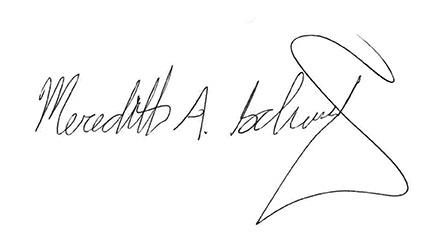Gig Librarianship | Editorial
Vocational awe. Burnout. Low morale. Precarity. Undercompensation. Together, the themes I see cropping up in LIS research, conference presentations, and Twitter point to a chronic problem.
|
Correction: In the original version, I said “Almost 80 percent of librarians responding to Kendrick’s survey experienced burnout, and nearly half considered leaving the profession because of it.” In fact, that was Jade Geary and Brittany Hickey’s survey. I, and LJ, regret the error. |
We need stable jobs at sustainable salaries
 Vocational awe. Burnout. Low morale. Precarity. Undercompensation. Together, the themes I see cropping up in LIS research, conference presentations, and Twitter point to a chronic problem.
Vocational awe. Burnout. Low morale. Precarity. Undercompensation. Together, the themes I see cropping up in LIS research, conference presentations, and Twitter point to a chronic problem.
That library workers who need full-time jobs are cobbling together part-time gigs instead is not news—we’ve seen evidence in LJ’s annual Placements & Salaries survey since the recession of the late 2000s. A few years ago we highlighted St. Paul Public Library, MN’s innovative plan (“Reworking the Workforce”) to allow library workers to stack multiple part-time jobs. It’s a great idea, but a drop in the bucket. Those in this bind, often with hefty student loans and lacking health care and other benefits, commonly end up leaving the profession to pay the bills, or because they’ve lost hope.
Precarity was a new term for me when Ruth Kitchin Tillman and Sandy Rodriguez wrote about it for LJ. They focused on full-time, short-term jobs in academic libraries, but it applies to grant-funded positions at public libraries too. While these positions can serve valuable functions for the institution, they can create a second class of librarians, without the stability they need to flourish.
In many ways, part-time and temporary librarianship is the libraryland version of the gig economy—or the adjunct crisis in higher education. These jobs also come at a cost to the employing library—in high recruitment and training expenses, more health care needed for stressed employees (if they have benefits), paid time off for those who have it, and “presenteeism” of sick employees for those who don’t. And they impact organizational culture, because those who lack full-time, permanent status are often not accorded the same platform and opportunity for input as those who do.
Even for full-time, permanent employees, the gig economy—in the form of side hustles—is still in play. One of the most depressing Twitter threads I’ve seen was started by Camille Bethune-Brown. She asked, “How many museum or library workers have to have a second job to make ends meet?” In the nearly 100 replies, full-time, mid-career GLAM (galleries, libraries, archives, museums) professionals, with significant responsibilities, reported having to work a second (sometimes third!) job. This is not merely “paying one’s dues”—itself problematic, since it keeps out people without economic privilege.
Burnout and low morale are intuitive concepts, but that doesn't mean there isn't more to learn. Kaetrena Davis Kendrick takes a deeper dive into the causes and impacts of low morale in librarianship, while Jade Geary and Brittany Hickey address burnout. Almost 80 percent of librarians responding to their survey experienced burnout, and nearly half considered leaving the profession because of it.
Vocational awe, a term coined by Fobazi Ettarh, is the mechanism by which reactions to burnout are stifled owing to the belief that library work is a higher calling. Among other impacts, it casts burnout as something to be addressed at the individual, rather than institutional, level.
That is a serious category error harming the profession—most importantly because every single one of these factors disproportionally harms library workers of color. As a field, we have declared equity, diversity, and inclusion to be a top priority. But in practice we haven’t moved the needle. If we are serious about representation, we need to get at least as serious about the factors driving people of color out of this profession as we are about trying to attract them into it.
Much as they might like to, library leaders can’t wave a pen to make all their jobs full-time and permanent, and raise salaries. But what we can do now is stop buying into the idea that serving patrons and taking care of staff are competing, rather than connected, values. We can make finding and fixing staff pain points a systemic priority—starting with creating an organizational culture that doesn’t shame workers for not powering through on grit, resilience, and library love.
We often emphasize that it is not the building or the collection but the staff that makes a library. If that’s true—I believe it is—then prioritizing good, secure jobs, at living wages, with enough support, is integral to our user focus, though it may mean fewer books or laptops, or even open hours. It’s putting on our own oxygen mask before helping others. And it’s making the library a model of sustainable, equitable employment for the community it serves.

RELATED
ALREADY A SUBSCRIBER? LOG IN
We are currently offering this content for free. Sign up now to activate your personal profile, where you can save articles for future viewing









Add Comment :-
Comment Policy:
Comment should not be empty !!!
Sarah Nagle
Thank you thank you THANK YOU. Our new/"young" librarians always leave for FT work at another system (there are eight in our metro area). Retention is given lip service; I would like to transition some collection work to a second person in preparation for retirement (hopefully five years) but right now there isn't that person. When I leave, I leave, and there will be a big hole because we aren't able to groom people. My generation couldn't deal with conflict; thus, the "leaders" who always worked full time did little about this. It's gender discrimination, for one thing.
Posted : Mar 05, 2020 03:56
Alison Bailey
I left full time, seasonal work in the museum field for part time, year-round work in the library field thinking it would provide more stability and help ease some of my anxiety-fueled health issues. I was wrong. OH BOY, was I wrong. Juggling three part time gigs--two in GLAM, one in janitorial (which pays better, by the way)--to live paycheck to paycheck with no benefits is no way to live. If anything, I've made my health worse.
Posted : Mar 04, 2020 04:04
Dr.Rajashree Sharanu
It's true. Nice thoughts madam I think everywhere under the sun is same position of the librarian
Posted : Mar 04, 2020 02:15
Amy An
Thank you so much for addressing these issues! Kendrick's work about morale is so important. Her work also includes bullying on the workroom side, that is, bullying by staff to staff. That is something that the GLAM world needs to address, especially as ethnic and racial minorities are bullied more than others. See also the work of Henry, Eschleman, and Moniz for more about bullying in libraries.
Posted : Mar 04, 2020 11:58